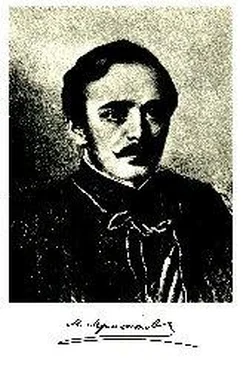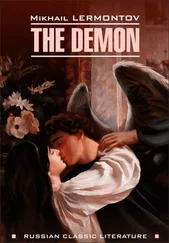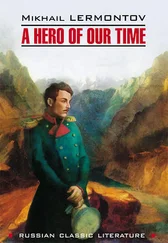"I haven't deserved this reproach, Maksim Maksimich."
"I'm just speaking at random, you know. Anyway, I wish you luck and a pleasant journey."
We separated rather coldly. Good Maksim Maksimich was now an obstinate, cantankerous captain. And why? Because Pechorin through absent-mindedness or for some other reason had merely extended his hand when his old friend wanted to fling himself into his embrace. It's sad to see a young man's finest hopes and dreams shattered, to see him lose the rosy illusions with which he viewed man's deeds and emotions, although there is still hope that he may exchange the old delusions for new ones no less transitory but also no less sweet. But what is there to exchange them for at Maksim Maksimich's age? Without wishing it, the heart would harden and the soul wither...
I set out alone.
Recently I learned that Pechorin had died while returning from Persia. This news pleased me very much, for it gave me the right to publish these notes, and I took advantage of the opportunity to sign my name to another man's work. God forbid that the reader should cast blame on me for such an innocent forgery!
Now I have to explain briefly what it was that prompted me to make public the innermost secrets of a man I never knew. It might've been understandable had I been his friend, for the perfidious indiscretion of the true friend is something everyone can understand. But I saw him only once, on my travels, and hence can't regard him with that inexplicable hatred which, concealed under the mask of friendship, only waits for death or misfortune to overtake the object of affection in order to bring down upon his head a hailstorm of arguments, advice, mockery and sympathy.
Reading over these notes, I became convinced that the man must've been sincere in so mercilessly laying bare his own weaknesses and vices. The story of a human soul, even the pettiest of souls, can hardly be less interesting and instructive than the story of a nation, especially if it is the result of the observation of a mature mind and written without the vain desire to evoke compassion or to amaze. One of the defects of Rousseau's [69] all-too-revealing Romantic so-called autobiography of 1782. See on-line version .
Confessions is that he read them to his friends.
Thus it was purely the desire to do some good that impelled me to publish excerpts from a journal which I just happened to acquire. Though I've changed all proper names, those mentioned in it will no doubt recognize themselves and perhaps find justification for deeds they have held against a man who is no longer of this world. For we nearly always forgive that which we understand.
I have included in this book only excerpts bearing on Pechorin's stay in the Caucasus. This still leaves me with a fat notebook in which he tells the story of his whole life. Some day it too will be submitted to public judgment. Now, however, I dare not take the responsibility upon myself for many important reasons.
Some readers will probably want to know what I think of Pechorin's character. My reply may be found in the title of this book. "But that is wicked irony!" they'll say.
I don't know about that.
Taman is the most miserable dump of all the seaboard towns in Russia. I very nearly died of hunger there, and was almost drowned in the bargain. I arrived by stage coach late at night. The coachman stopped his tired troika at the gate of the only brick building, which stood at the entrance to the town. Roused from a doze by the tinkling of the carriage bell, the Black Sea Cossack on sentry duty shouted wildly: "Who goes there?" A Cossack sergeant and a corporal emerged from the building. I explained that I was an officer on my way to join an active service unit on official business and demanded housing for the night. The corporal took us around town. All the cottages we stopped at were occupied. It was chilly, and not having slept for three nights running, I was exhausted and began to lose my temper. "Take me anywhere you want, you good-for-nothing! To hell, if you please, as long as there's a place to stay!" I shouted. "There is still one place [70] nechisto, just unclean, but there are overtones of haunted or evil, perhaps influenced by Undina.
left," the corporal replied, scratching the back of his head. "Only you won't like it, sir; there are strange [70] nechisto, just unclean, but there are overtones of haunted or evil, perhaps influenced by Undina.
goings on there..." Failing to understand the precise meaning of the last remark, I told him to go ahead, and after wandering about for a long time in muddy alleys lined with rickety fences, we drove up to a small hut on the seashore.
A full moon lit up the reed roof and white walls of my prospective dwelling. In the courtyard, which was fenced in by a crude stone wall, stood another miserable, crooked hut, smaller and older than the first. A cliff dropped abruptly to the sea from the very walls of the hut, and down below the dark-blue waves broke against the shore with an incessant roar. The moon looked down serenely upon the restless ships at anchor far from the shore, their black rigging a motionless cobweb against the paler background of the skyline. "There are ships in the anchorage," thought I. "Tomorrow I'll leave for Gelendzhik [71] Black Sea port near Caucasus, south of Taman.
."
A Cossack from a front-line unit served as my valet. Telling him to take down my suitcase and dismiss the driver, I called for the master of the house. There was no answer. I knocked, and still there was no reply. What could it mean? Finally a boy of about fourteen appeared from the porch.
"Where is the master?" "No master." "What? You mean there is no master at all?" "None at all." "And the mistress?" "Gone to town." "Who's going to open the door for me?" said I, kicking at it. The door opened by itself, and a damp smell came from the hut. I struck a sulfur match and brought it close to the youngster's nose, and in its light I saw two white eyes. He was blind, totally blind from birth. As he stood motionless before me I looked closely into his face.
I admit that I'm greatly prejudiced against all the blind, squint-eyed, deaf, mute, legless, armless, hunch-backed and so on. I've observed that there's always some strange relationship between the external appearance of a man and his soul, as if with the loss of a limb the soul too has lost some faculty of sensation.
So I examined the blind lad's face, but what would you have me read on a face without eyes? I looked at him long with involuntary pity, when a faint smile flitted across his thin lips, making, I know not why, the most unpleasant impression on me. A suspicion that he wasn't as blind as he seemed flashed through my mind, and in vain I tried to assure myself that it's impossible to pretend to have a cataract. And why would anyone do that? But I couldn't help suspecting, for I am often inclined to preconceived notions.
"Are you the master's son?" I asked him at last. "Nay." "Then who are you?" "Orphan, a poor orphan." "Has the mistress any children?" "Nay. There was a daughter but she ran away across the sea with a Tatar." "What kind of a Tatar?" "The devil knows! A Crimean Tatar, a boatman from Kerch."
I walked into the hut. Two benches, a table and a huge trunk next to the stove were the sole furnishings. Not a single icon was there on the wall-a bad sign that! The sea wind blew in through a broken window. I took out the stub of a wax candle from my suitcase and lighting it began to lay out my things. I put my sword and gun in a corner, laid my pistols on the table, and spread out my cloak on a bench while the Cossack laid out his on the other. In ten minutes he was snoring, but I couldn't sleep. The lad with the white eyes kept twirling before me in the darkness.
Читать дальше

![Михаил Лермонтов - A Hero of Our Time [New Translation]](/books/27671/mihail-lermontov-a-hero-of-our-time-new-translati-thumb.webp)










